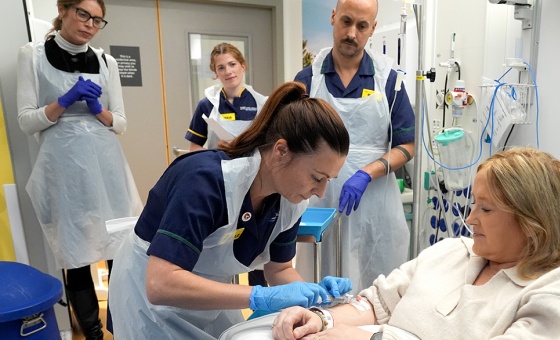This is the last article you can read this month
You can read more article this month
You can read more articles this month
Sorry your limit is up for this month
Reset on:
Please help support the Morning Star by subscribing here
THE schools concrete crisis is “putting rocket fuel on a growing problem” of children’s mental health, an expert has told the Morning Star.
Patrick Regan, co-founder and president of mental health charity Kintsugi Hope, warned that recent school closures and the move to home learning due to the presence of reinforced autoclaved aerated concrete (Raac) would “hit the poorest and those with additional needs the hardest,” just like with Covid-19.
Research by the Centre for Social Justice found that some 100,000 children did return to education following the pandemic.
Mr Regan highlighted issues with access to wifi and tech, as well as parents being unable to take time off from work to supervise.
“Imagine if you’re just about to go into year seven,” he said.
“That’s anxiety-inducing as it is, getting to know a new class, getting to know new teachers, being in a new environment.
“But imagine starting that transition on Zoom. It must be frightening.”
He said statistics show the scale of the issue, including how 68 per cent of young people reported the reason for being absent from school is due to their mental health.
Kintsugi Hope has seen some 2,000 young people go through its six-week programme to give them tools to improve their mental health and build supportive relationships.
Mr Regan said this can help restore a young person’s mental health, adding: “Raac is putting rocket fuel on a growing problem that we knew was there already.
“There’s a complex interplay of many issues for our young people today, and I do think they face some unique challenges.
“They basically had a death counter on their TV for two years telling them how many people had died [from Covid-19] that day.”
He highlighted concerns such as fears of a future due to climate change, racism, and the war in Europe “played out” on TikTok adding to challenges of poverty, poor housing, addiction, educational failure, gang crime and unemployment that influence poor mental health.
Mr Regan said that parents and teachers are often also feeling the pressure.
“Teachers are utterly exhausted,” he said.
“Many are doing their best, but they are burned out trying to achieve government targets which are just not sustainable.”
He called for government investment into early intervention to protect young people from crime, investment in communities and charities that can have tailor-made solutions for individual issues and better access to mental health support in schools.
Mr Regan is the author of Brighter Days: 12 Steps for Strengthening Your Wellbeing.











